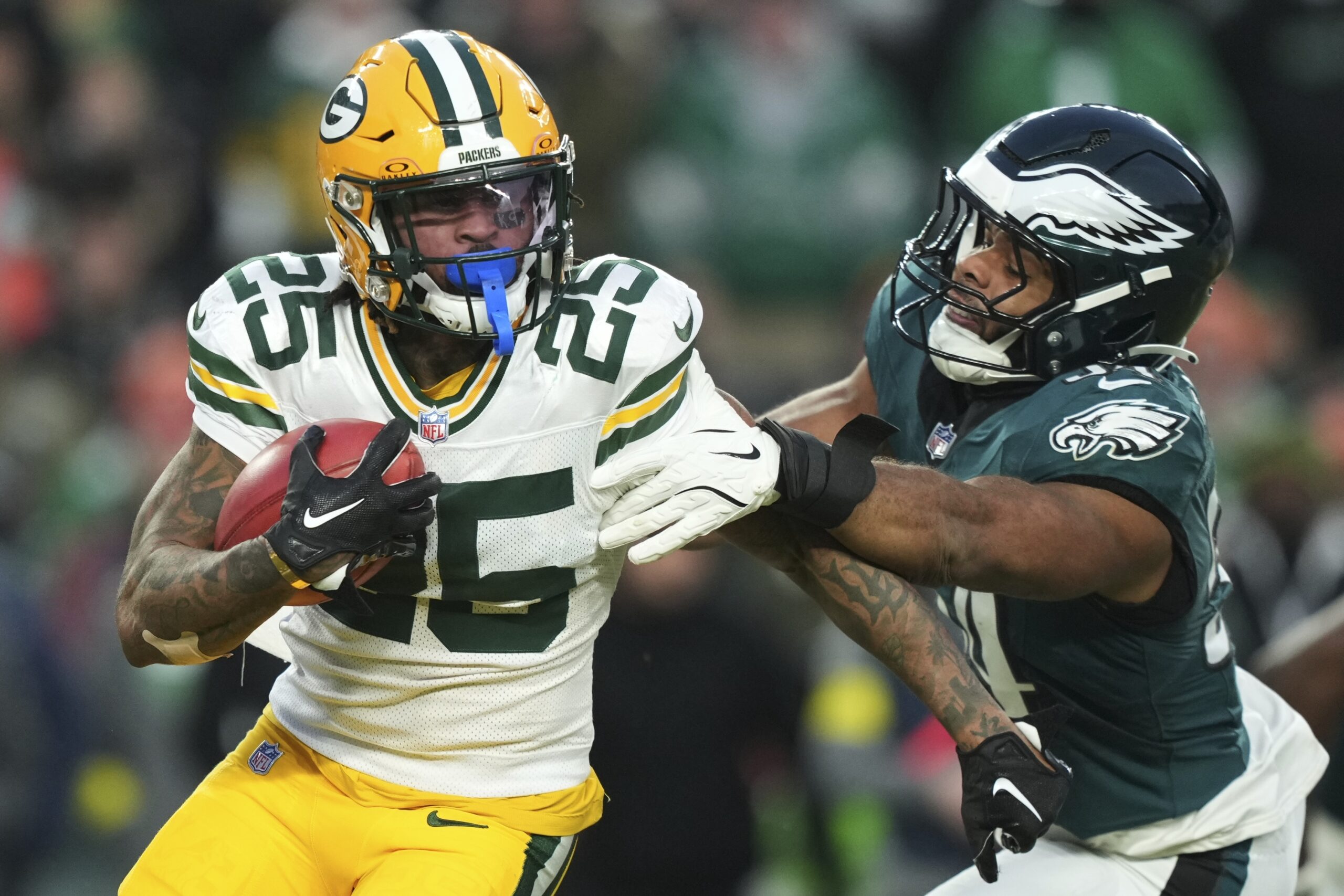PHILADELPHIA (AP) — Keisean Nixon fumbled the opening kickoff and the Green Bay Packers were never able to pick up the pieces.
Nixon’s lost fumble was the first in a series of blunders in a 22-10 loss at the Philadelphia Eagles in the wild-card round Sunday night, an injury-marred game that ended the Packers’ season.
Green Bay lost two of its top three receivers, a couple of starting offensive linemen and a handful of defenders, and their replacements were among the key contributors to some of the mistakes that proved costly.
Coach Matt LaFleur singled out the fumble, the first of the Packers’ four turnovers, as a bad tone-setter. It was the first time a team fumbled away the opening kick of an NFL playoff game since 2001.
“When you come into somebody else’s house against a really good football team, you can’t start the way we did,” LaFleur said. “To fumble the opening kick and them turn it into a touchdown and be down 7-0 from the jump, it was obviously too much to overcome.”
So were the injuries, which piled up throughout the game.
Left guard Elgton Jenkins was knocked out with a stinger in the first quarter right around the time defensive tackle Devonte Wyatt left with a lower leg injury. Jenkins’ replacements, rookie Travis Glover and then Kadeem Telfort, were penalized multiple times, and even veteran Sean Rhyan was flagged late after moving from right tackle to center when Josh Myers injured his left leg.
“It was a real sudden shift early on in the game, and they stepped up,” Rhyan said of Glover and Telfort. “A couple calls here and there — it could’ve gone either way. But for how sudden it was, I think they did a fine job.”
In between the Packers losing linemen, Romeo Doubs’ head bounced off the turf in the end zone and fellow receiver Jayden Reed injured a shoulder in the second half. Doubs was evaluated for a concussion, but LaFleur said the 24-year-old was doing better than he feared when assessing the situation on the field and did not want to use injuries as an excuse.
“It’s unfortunate, and I hate it for our guys that have to battle through that, but it’s football,” LaFleur said. “It’s a next-man-up mentality, and there’s a standard of performance that you have to go out there and we have to hold that standard no matter who’s in and you’ve got to find ways to adjust and it’s our job as coaches to try to make the necessary adjustments to put those guys in positions where you can still have success.
“We obviously didn’t do a good enough job of that.”
The attrition certainly played a role. When the Packers were mounting a comeback bid in the fourth quarter, Jordan Love’s fourth-down pass was incomplete when Malik Heath — on the field only because Doubs and Reed were out — could not get both feet inbounds.
By that point, the Packers were trying to climb out of a deficit. Love — who insisted his sore throwing elbow had no effect on his play as he threw three interceptions — and LaFleur were critical of how the offense could not get enough going.
“That first half, man, we were flat, we were hurting ourselves, a lot of penalties, bad decisions,” said running back Josh Jacobs, who scored Green Bay’s only touchdown and accounted for 121 of 302 yards of offense. “You can’t win games like that.”
Likewise with penalties — the Packers were penalized eight times for 85 yards, including a couple of personal fouls late: one by Nixon and another by T.J. Slaton on late hits. LaFleur lamented the lack of discipline and said his players needed to be better at keeping their emotions in check.
“Against big teams, against good teams, you can’t make as many mistakes — costly penalties, whatever, frustration, flags,” Jacobs said. “It just can’t happen.”


